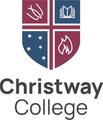From the Head of Primary's Desk

When I was growing up, I often heard the saying – “Sticks and stones may break my bones, but names will never hurt me.”
While I understand the sentiment behind this phrase, I don’t believe this statement to be completely truthful. When speaking with students it is evident that words have incredible power and can severely hurt us, despite our best efforts not to allow them to affect us.
On the flipside of this, our students also recognise that words can have a highly positive impact and influence upon a person when used in the right way.
According to scripture, words can be a source of life, a source of hope, a source of joy. Words can be a source of so many positive outcomes, which unfortunately gets lost in a world where words seem to be more often used in a negative sense.
The Apostle Paul writes in Ephesians 4:29 “When you talk, do not say harmful things. But say what people need—words that will help others become stronger. Then what you say will help those who listen to you” (ICB). As parents and teachers, our words can have such a positive impact on the young people we interact with.
Two words that I believe are extremely powerful and positive are, “I’m sorry”. We often use these words to acknowledge our own guilt in a behavior or in an apology to someone. We may also use these words, “I’m sorry”, to communicate a recognition of hurt or struggle a person may have experienced.
In both situations, I believe these two words, “I’m sorry”, can be part of the healing process in a person’s life. I know I have experienced ‘healing’ or even the feeling of being understood when someone has said these two words to me, perhaps a personal situation comes to mind for you?
On Thursday May 26, as a school we will recognize National Sorry Day (as part of Missions Week) where we remember and acknowledge the mistreatment of Aboriginal and Torres Strait Islander people who were forcibly removed from their families and communities, the pain at the time and the ongoing implications of families and communities being separated. While we were not involved in this horrible act as individuals, we believe it is important to recognise the power in our response, and how the simple act of saying, “I’m sorry”, can bring life and be part of a person’s healing.
As HCC seeks to be CONNECTED this year, let us remember that our words can play a very powerful part in bringing connection in our school community, and also with those communities around us.
Grace and peace.
Pete Bunyon
Head of Primary
If you are able, join with me in the prayer below:
Prayer for National Sorry Day
Holy Father, God of Love,
You are the Creator of this land and of all good things.
We acknowledge the pain and shame of our history
and the suffering of our peoples,
and we ask your forgiveness.
We thank you for the survival of indigenous cultures.
Our hope is in you because you gave your Son Jesus
to reconcile the world to you.
We pray for your strength and grace to forgive,
accept and love one another,
as you love us and forgive and accept us
in the sacrifice of your Son.
Give us the courage to accept the realities of our history
so that we may build a better future for our nation.
Teach us to respect all cultures.
Teach us to care for our land and waters.
Help us to share justly the resources of this land.
Help us to bring about spiritual and social change
to improve the quality of life for all groups in our communities,
especially the disadvantaged.
Help young people to find true dignity and self-esteem by your Spirit.
May your power and love be the foundations on which we build our families,
our communities and our nation,
through Jesus Christ our Lord.
(eternitynews.com.au Kylie Beach)

